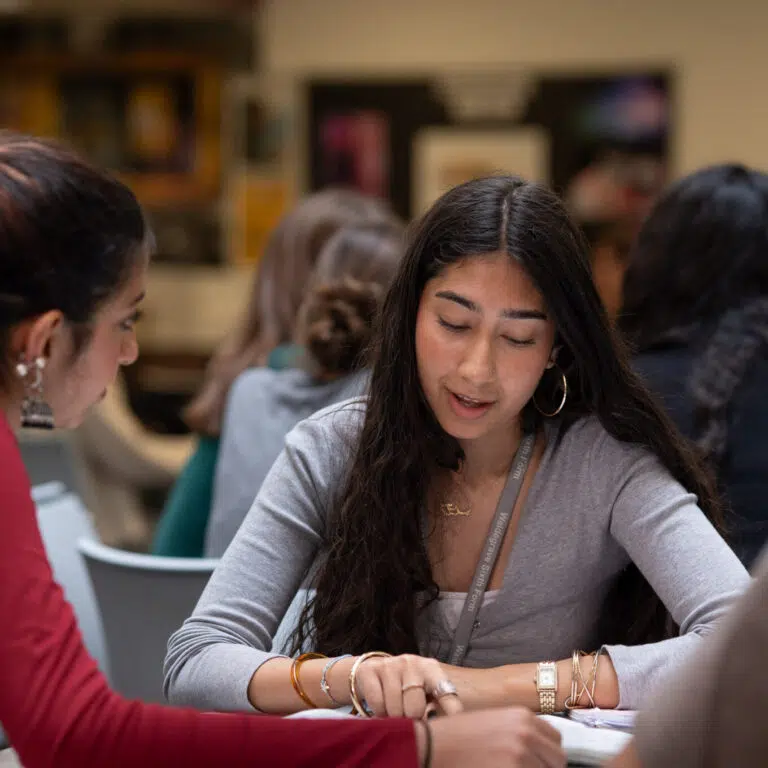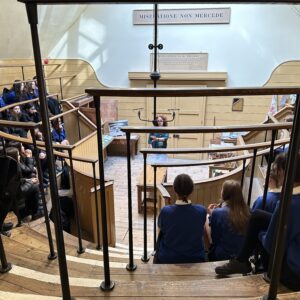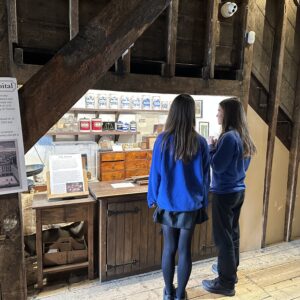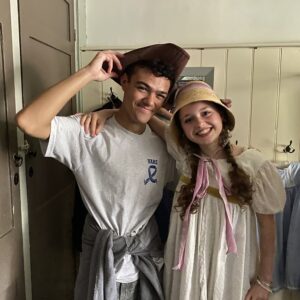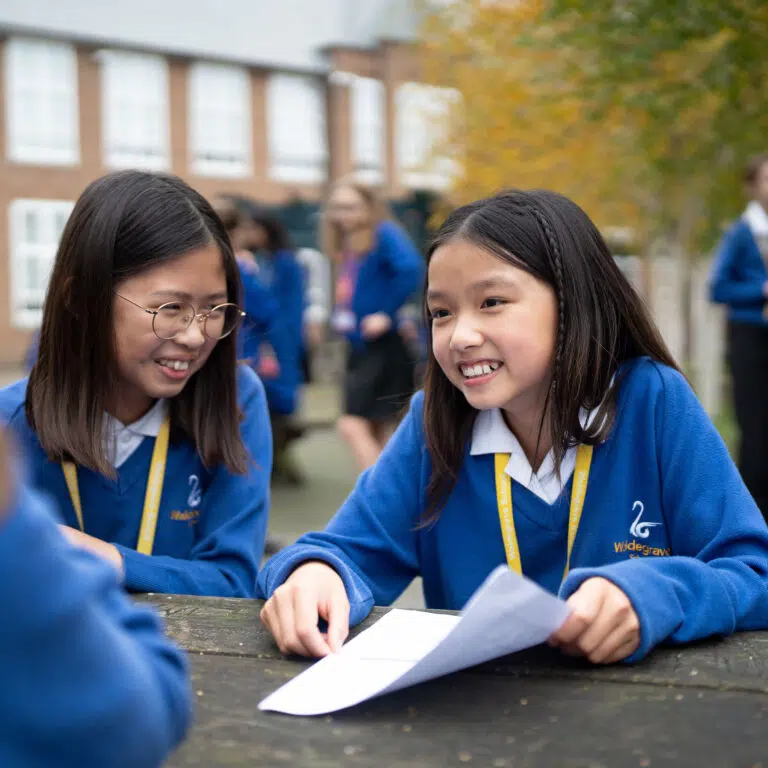The purpose of our curriculum is to give students a broad (mostly chronological) knowledge and understanding of significant people, events and developments and their impact, from the classical world to the 21st century. Within this, there will be aspects of depth study and aspects of thematic study.
Our enjoyable Key Stage 3 curriculum aims to provide a good foundation and smooth transition for those who opt to study History at GCSE and A Level. We start with developing students’ chronological understanding with the creation of timelines and historical overviews. This is followed by three years of enquiry based lessons covering a range of historical periods and topics including the Middle Ages; The Silk Roads, the Tudors, African Kingdoms; Industrial Revolution; Empire, Rights of Women and War in the 20th century. During lessons students are introduced to key historical concepts and skills including change and continuity; significance; causation and interpretations which provide students with the tools to fire their curiosity and start asking interesting questions about the past.
The Key Stage 4 curriculum provides students with the opportunity to develop these foundational skills and apply them in a more sophisticated way to new areas of study. Our breadth study on the History of Medicine, 1250 – Present provides students with the opportunity to study a topic over an extended period of time. This contrasts with a depth study of Germany 1919-39, which examines the challenges of starting a new democracy in post WW1 Germany, and the reasons for Hitler’s ascent to power. The course is completed with two further studies: Elizabethan England and the American West. At KS4 students’ enjoyment becomes more intellectual, enabling students to articulate their ideas more effectively in class discussions as well as on paper in extended writing tasks.
Students who choose to continue History at Key Stage 5 start their A Level with a study of two Communist States in the twentieth century: Russia and China. Here students start to ask more complex questions which help them to understand issues relevant to the modern world, e.g. why economies sometimes fail; whether the idea of communism was successful and how successful revolutionaries are as rulers. The coursework unit of A Level is valuable preparation for degree level study where the students learn to work as an historian, researching areas of academic debate and formulating their own extended responses to key historical questions. The Tudor unit on rebellion and disorder, 1485-1603 provides students with the opportunity to study the enormous political and religious changes of the period which marked the beginning of our modern nation state.
Underpinning all aspects of our curriculum is the importance of students being able to see themselves represented in the past so they understand their place in the present. We aim to deliver a diverse outward looking curriculum which examines some of the key events which shaped the Britain we live in today such as the arrival of the Empire Windrush in 1948 which brought some of the first post-war migrants from the Caribbean to Britain. We also cover areas of non European history including African Kingdoms; Silk Roads and the American West.
Beyond the curriculum we offer students the opportunity to attend an exciting programme of talks from professional historians on a diverse range of topics.
